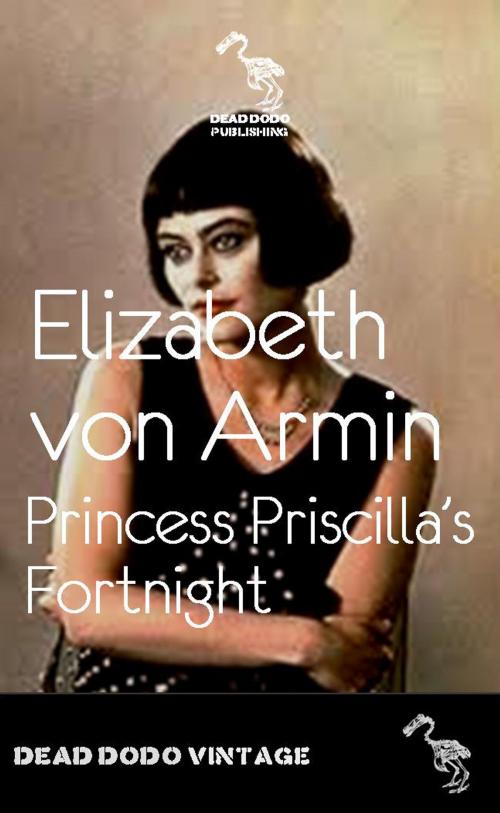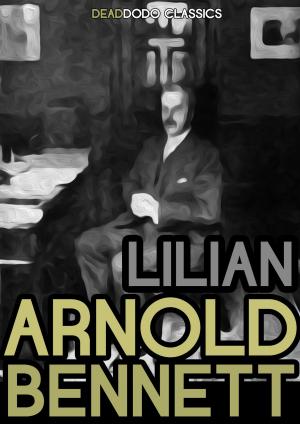| Author: | Elizabeth von Arnim | ISBN: | 9781909959668 |
| Publisher: | Dead Dodo | Publication: | December 15, 2009 |
| Imprint: | Dead Dodo Vintage | Language: | English |
| Author: | Elizabeth von Arnim |
| ISBN: | 9781909959668 |
| Publisher: | Dead Dodo |
| Publication: | December 15, 2009 |
| Imprint: | Dead Dodo Vintage |
| Language: | English |
First published in 1905, Princess Priscilla's Fortnight was no doubt written as a true-to-life fairy tale for Von Arnim's children. It tells the story of Priscilla, a hugely popular German princess, who grows tired of her lavish and pampered life. Through the instruction of her mentor, Herr Fritzing, she learns there is a wide and varied world outside the castle walls and yearns to escape. Elizabeth von Arnim is rather noted for the enchanting style of her books. At the start, Princess Priscilla has a fairy tale quality. A sheltered princess runs away because she believes she will live a purer life if she were poor. Obviously, things don't work out. Written in an avuncular tone rather similar to Lewis's Narnia books, it was quite funny at times, mostly with the narrator's asides. Von Arnim's style is chatty and discursive, an ever-present authorial voice observing, interpreting and even disapproving. "I shall chronicle," she says, "and not comment. I shall try to, that is, for comments are very dear to me." And she embarks on a fresh paragraph of moralising. Later she says, "And now I come to a part of my story that I would much rather not write." Priscilla is the erring child of her heart.
First published in 1905, Princess Priscilla's Fortnight was no doubt written as a true-to-life fairy tale for Von Arnim's children. It tells the story of Priscilla, a hugely popular German princess, who grows tired of her lavish and pampered life. Through the instruction of her mentor, Herr Fritzing, she learns there is a wide and varied world outside the castle walls and yearns to escape. Elizabeth von Arnim is rather noted for the enchanting style of her books. At the start, Princess Priscilla has a fairy tale quality. A sheltered princess runs away because she believes she will live a purer life if she were poor. Obviously, things don't work out. Written in an avuncular tone rather similar to Lewis's Narnia books, it was quite funny at times, mostly with the narrator's asides. Von Arnim's style is chatty and discursive, an ever-present authorial voice observing, interpreting and even disapproving. "I shall chronicle," she says, "and not comment. I shall try to, that is, for comments are very dear to me." And she embarks on a fresh paragraph of moralising. Later she says, "And now I come to a part of my story that I would much rather not write." Priscilla is the erring child of her heart.















